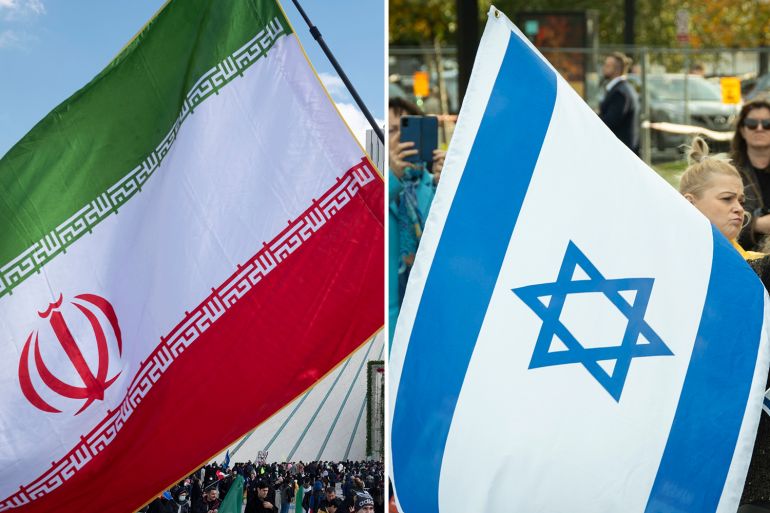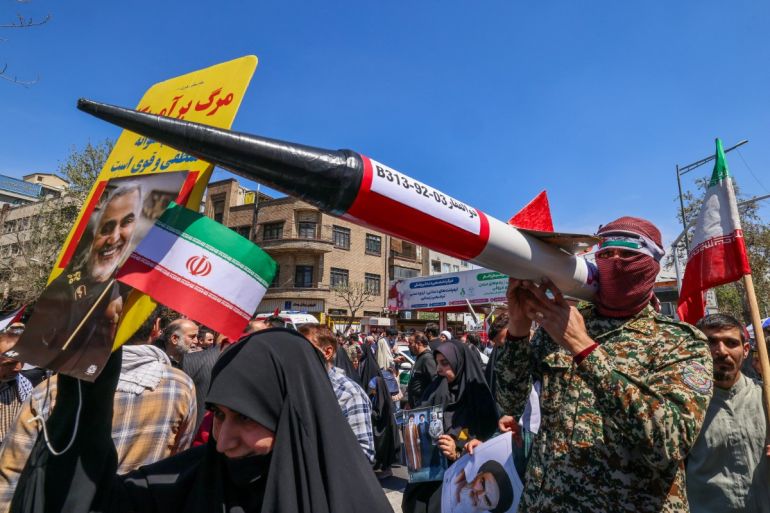What does Israel want to do after Iran’s drone and missile attacks?
Analysts look at the reasons behind Israel’s attack on Iran’s consulate, which triggered Iran’s overnight barrage on Israel.

Israel is reportedly unable to agree on a response to an overnight barrage of more than 300 Iranian drones and missiles, launched in response to Israel’s own strike on the Iranian consulate in Damascus on April 1.
According to the Israeli army, 99 percent of the projectiles were intercepted by its jets and those of its allies, including the United States and Jordan. Others were stopped by Israel’s Iron Dome missile defence system, acquired and operated with US help.
While Western diplomats and US President Joe Biden have reportedly told Israeli Prime Minister Benjamin Netanyahu they will not support further retaliation, some analysts suggest that last night’s strikes may be part of a wider ploy to draw the US, Israel’s close ally, into a broader regional war.
Laying the foundation on April 1?
In determining how Israel may respond to the overnight attack, analysts have focused on Israel’s own attack on the Iranian consulate on April 1.
That strike, which killed two Islamic Revolutionary Guard Corps (IRGC) generals and five officers, was carried out with scant regard to Israel’s allies, who were only notified shortly ahead of the attack, according to at least one analyst Al Jazeera spoke to.
Hamidreza Azizi, a visiting fellow at SWP Berlin, outlined two scenarios, both resting upon the motivations behind the Israeli attack on the Iranian consulate.
In the first scenario, the Israeli strike occurred with little or no thought given to the consequences. In the second, the strike was a deliberate attempt to draw Iran into regional war and shift US and Western focus away from Israel’s war on Gaza and towards the regional bogeyman, Iran.
In both scenarios, US involvement would be critical.
Despite its status as a regional superpower, Israel – overstretched by six months of war on Gaza – would stand little chance against Iran’s standing army of at least 580,000, supplemented by some 200,000 trained reserve personnel, divided among the army and the IRGC.
“Netanyahu’s plan is clear, to distract attention from the war in Gaza and to drag the US and other Western allies back into the Middle East,” Nomi Bar-Yaacov, an associate fellow at Chatham House, said.
“Given the close relationship between Israel and the US and Israel’s dependency on US aid, Israel should have informed the US that it was planning to attack the Iranian consulate building where the IRGC is based.
“By not doing so, Israel crossed a red line. Israel’s motives … need to be questioned. An attack on a foreign consulate constitutes a strike on foreign soil under international law, and it is clear that Netanyahu knew he was crossing the line and that Iran would respond with force,” she said.
Passions ran high in Iran after the assassination of seven IRGC members in Syria. Shown here is the funeral procession for them in Tehran on April 5, 2024 [Atta Kenare/AFP]

Comments
Post a Comment